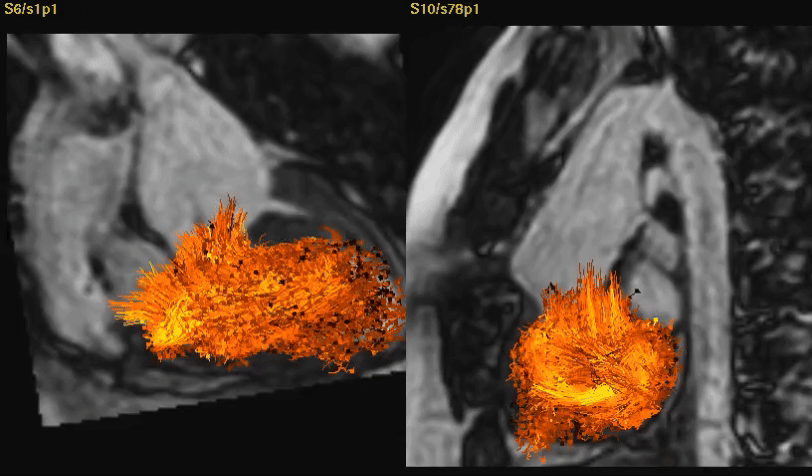Innovations
Big Data
Harnessing the power of “big data,” FORCE is the future of Fontan research.
By aggregating data from participating congenital heart centers worldwide, FORCE has built the most comprehensive dataset on Fontan patients.
The detailed CMR data provides a rich foundation for researchers to explore complex questions, but it is the scale of this data that allows for large unique scientific studies and new clinical insights that would have otherwise been impossible to understand in smaller, isolated contexts.
42 Centers
4200+ Patients
6400+ CMRs
34+ Active
Studies
By democratizing the data for any investigator, the FORCE registry ensures that this information is both accessible and actionable to researchers at institutions of any size.
Big data's true power is the ability to compare outcomes across different institutions and sub-populations of patients, enabling a more standardized approach to analysis.
FORCE investigators can explore data in real-time, create interactive visualizations and ask critical questions that will advance the field. Any single center can only go so far to improve outcomes, but with nearly 4,000+ patients and 6,000+ CMR scans and counting, FORCE can change the paradigm for how future Fontan research questions are answered.
Types of Data
The FORCE registry is comprehensive, collecting a variety of data in addition to the cardiac MRI images.
Clinical History
Surgical History
Testing Metrics
Outcome Events
Artificial Intelligence
Artificial intelligence, specifically deep learning, is at the heart of FORCE's revolutionary approach to Fontan research and care. By integrating advanced algorithms, FORCE can process and analyze detailed datasets collected from participating centers worldwide.
Artificial intelligence has allowed FORCE to accomplish significant gains in just a few years. With a high degree of accuracy, artificial intelligence accelerates the time it takes to translate an image into quantitative metrics and data. What would normally take a team of researchers tens of thousands of hours to complete can be done in minutes, all while improving reproducibility and reducing the potential for human error.
The application of artificial intelligence in FORCE goes beyond basic data processing – it will lead to predictive and personalized care. By training algorithms on extensive datasets, researchers can potentially develop models that predict patient outcomes, such as the risk of complications or the likelihood of successful interventions.
As artificial intelligence models evolve and are refined, they will further enhance the registry's ability to generate insights and drive scientific discovery. With artificial intelligence, FORCE is not only advancing our understanding of single ventricle heart disease, but also setting new standards for research in all patients born with congenital heart disease.
Analytics Platform
The FORCE analytics platform is designed to aggregate data from congenital heart care centers worldwide, creating a robust and comprehensive database to drive research and clinical insights. The platform allows researchers to ask and answer important questions that advance our understanding of single ventricle heart conditions by centralizing vast amounts of clinical and imaging data. The global aggregation of data ensures that findings are based on diverse patient populations, enhancing the reliability and applicability of research outcomes across different demographics and regions.
Because the platform is cloud-based, investigators foster open collaboration among peers and can access new data and visualizations in real time. These visual tools simplify the interpretation of data, making it easier for researchers to identify patterns, test hypotheses, and develop new insights.
















